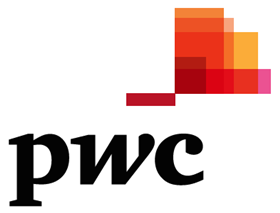The global journey towards achieving the SDGs provides investment opportunities many investors are keen to grasp. Although some investors have already adopted strategies to capture these benefits and avoid the risks presented by ignoring the SDGs, many are still seeking answers to the question of if and how the SDGs will affect their investment strategy, policy, asset allocation and other investment decisions.
Fulfilling their fiduciary duty is an important consideration for investors. The PRI’s Fiduciary duty in the 21st century concluded that as part of their duty to beneficiaries, investors must consider all financially material factors, regardless of their origin. Far from fiduciary duty being a barrier to considering sustainability issues, the report finds that there are positive duties on investors to incorporate them, and this belief is supported by a growing number of policy makers and regulators.
There are principles that underpin fiduciary duty:
- that financially material ESG factors should be incorporated in investment decision-making;
- that investors should consider ESG factors consistent with the time-frame of the obligation;
- that investors should understand and incorporate the sustainability preferences of their clients/beneficiaries/savers.
The ESG requirements of fiduciary duties are not yet clarified in all regulatory frameworks. As part of the fiduciary duty project, the PRI, UNEP FI and The Generation Foundation have published detailed roadmaps across the world’s major capital markets, setting out policy and practice recommendations to overcome barriers to a fiduciary fulfilling the sustainability considerations of his or her duty.
Recent policy initiatives in Europe, UK, South Africa and Brazil include an obligation to integrate ESG issues in investment decisions and conduct dialogue with beneficiaries on their sustainability preferences – including making transparent how incorporating preferences may influence investment returns. To the extent that they understand the sustainability preferences of their clients/beneficiaries/savers, investors may decide to incorporate them in their investment strategies and decisions. This obligation will then be relevant for both asset owners and managers.
The SDGs impact upon the capital markets in a number of ways, but the most relevant for our purposes are:
- the SDGs are a global consensus on long-term goals, and investors have a role to play in achieving those goals;
- they can be used as a framework for measuring real-world impact at the investor and system level;
- they act as signposts for economic actors and public sector policy, which will impact finance, both at the macro level of GDP growth and the sustainability of the financial system, as well as on the micro level of risks and opportunities for companies and investments.
It is in this respect that in this paper we will discuss the other elements that make the SDGs relevant for investors. So, when considering the wider role of finance in society, the SDGs are likely to become the common framework with which to shape future investment decisions and against which to judge the utility of finance.
“At Cbus our priority is investing to generate the best outcomes for our members and ensuring our strategy delivers sustained value. A sustainable global financial system requires the realisation of the SDGs. That is why we are committed to investing in a way that contributes to the achievement of these ambitious goals and encourage others to join us.”
David Atkin, CEO, Cbus
“Institutional investors should be in the business of investing for the long term well-being of their beneficiaries. After all, nobody wants to retire into a world ruined by poor corporate practices. The SDGs provide the best guide as to how to build the world we all want. That’s why at Aviva we’re bringing together others to build a set of free, publicly available benchmarks to show how well companies are doing in contributing to – or working against – the aims of the SDGs. We believe everyone needs to work together to deliver the bold aims of the SDGs and a healthy future for all.”
Steve Waygood, Chief Responsible Investment Officer, Aviva Investors
“As a fiduciary investing on behalf of our institutional clients, Western Asset seeks to identify investments which will deliver superior and consistent returns over the long-term horizon. We believe that the Sustainable Development Goals (SDGs) are vitally important to the health of the global economy and as such, fully synergistic with our investment objectives. Through our engagements with issuers, we seek to increase transparency around environmental, social, and governance factors, and through our partnerships with clients, we seek to increase understanding of the importance of the SDGs.”
Western Asset
Produced in collaboration with PwC
Downloads
The SDG investment case
PDF, Size 2.83 mbEl enfoque de inversion en los ODS
PDF, Size 1.66 mb
References
they act as signposts for economic actors and public sector policy, which will impact finance, ;
The SDG investment case
- 1
- 2
- 3Currently reading
Fiduciary duty
- 4
- 5
- 6
- 7














